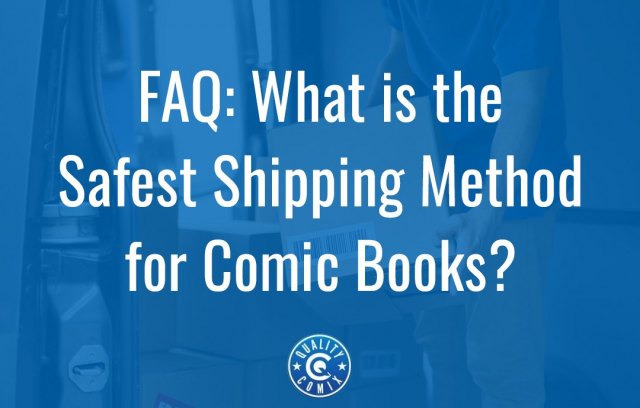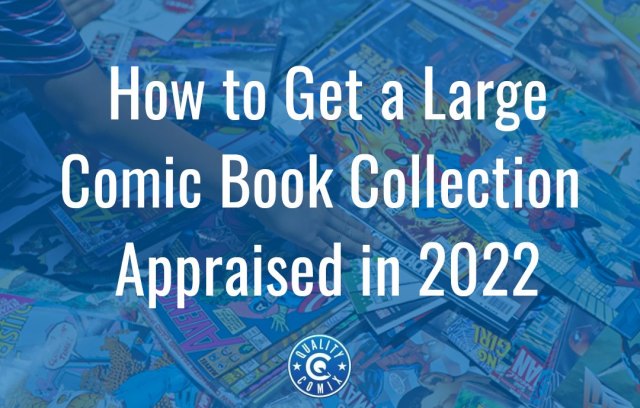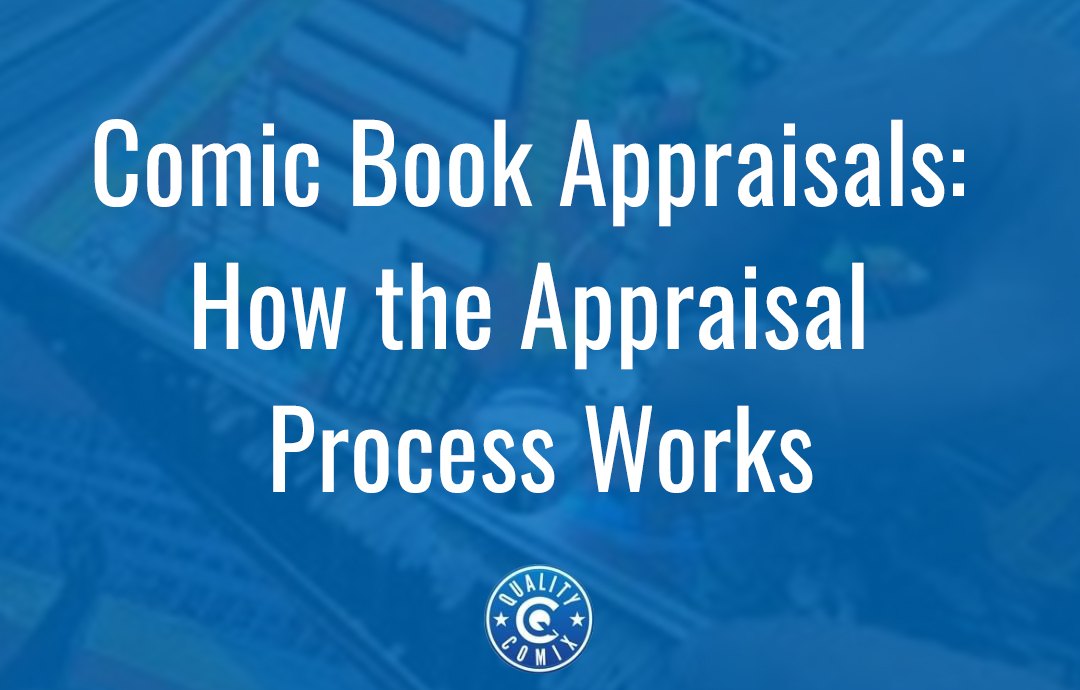
Appraisals are one of the most critical and stress-inducing parts of selling a collection.
A professional must appraise correctly to ensure you get an accurate valuation for your comics. If it's done poorly, an inflated value means your books won't sell, and an underestimated value means you won't get what they're worth when you sell.
You also need to trust the honesty of your appraiser. It's not common, but occasionally, you may run across a shady dealer who under-appraises a collection to make a "generous" offer that leaves them even more room for profit.
To ensure that you have the most accurate valuation for your comics, you should go through the proper appraisal channels and have it all done correctly. The question is, how? Here's how the appraisal process works, what you can expect, and what you should look for in a good appraiser.
Table of Contents
Step 1: Analyze and Assess the Collection
The first step of the appraisal process is to categorize and assess your collection. Sometimes this is easy; maybe it's all in order, complete runs, and clearly labeled. Other times, it's just a bunch of unsorted comics in longboxes, and you have to go through and figure it all out.
You'll want to know what you have and its condition. This information must be as accurate as possible because it will determine how much your comics are worth. You'll also want to know whether your comics are in a protective sleeve, bag, or board; this will help the buyer ensure they stay safe while they're in their care and prevent any fading due to sunlight exposure.
The best thing you can do is use a spreadsheet or a collection tracking app to build up a database of the comics. You want the book's title, publication date, issue number, a rough estimate of the condition, and any important details like if it's graded, signed, or if it's a variant cover, and so on. Estimating the comic's era can also help, though it's optional.
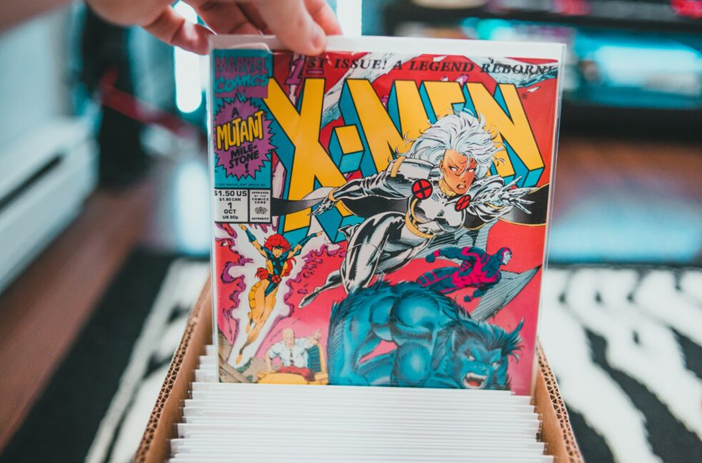
Tip: Whenever possible, include the book's cover price in your list as well. Some lines have multiple runs that get up to the same issue number, and the cover price can help determine which version it is.
When estimating the book's condition, it can help to use a scale similar to those used by grading agencies, though, of course, you don't need to be super detail-oriented or accurate with it.
Having a document or spreadsheet of the collection gives you a list you can send to appraisers for evaluation. They can give you their rough estimates much more quickly than they can if all you're doing is describing what you have.
Tip: For smaller collections, you can skip this and take pictures. Stack 10-20 comics at a time, spread out so around half of each cover is visible (usually the left half with all of the publication information), and take as clear a picture as possible. Repeat until your whole collection has been photographed.
These pictures can give appraisers all the information they'll need to identify and appraise your collection, barring exceptional circumstances. Photos can help with a more accurate evaluation, particularly for older comics where the condition can be the difference between a $500 book and a $10,000 book.
Step 2: Decide on the Type of Appraisal
This step is a quick and intermediary one, and it depends on what your goal is with your appraisal.
The most common types of appraisals are market, insurance, and tax:
- Market appraisals are for buyers and sellers who want to know what a particular comic book is worth.
- Insurance appraisals are for collectors who have been robbed or experienced a natural disaster and need to file an insurance claim.
- Tax appraisals are needed if you're selling your collection as part of a large inheritance or borrowing money to purchase comics from the bank.
If you're keeping the collection, a rough group appraisal (plus an individual appraisal of a few specific key books) can be all you need to track the rough value of the collection.

You only need a whole-collection valuation if you're looking to sell the whole collection. Barring special key issues, an estimate of the entire group will give you a general idea of what you can expect when selling. Remember, selling a whole collection at once generally means getting a bit less value than you would if you took the time to market each book individually.
If you want to sell each book independently or in small groups, getting a comprehensive appraisal of each book will be the most accurate option. It's also the most time-consuming, and it's not worth it for most modern books that are under $10 each.
There's no right or wrong answer here; it all comes down to what you want from your collection.
Tip: Try to keep your expectations low. Unless you know for sure that you have a collection of high-quality vintage comics, chances are most of what you have isn't worth all that much. It happens! 90% of the value of a comics collection generally comes from 10% of the books in it, and it's always possible those have already been sold.
All too often, a "collection" is "everything you were reading at the time," and it's not particularly unique or valuable.
You may have a diamond in the rough. You may have a pedigree collection in the making. Around 99% of the time, you have a reasonably typical collection and shouldn't expect to sell for millions.
Step 3: Look for Appraisers to Contact
Next, you need to decide who to contact for appraisals. Generally, you have three options.
First, you can contact dealers. Comics dealers are agents who make their living buying and selling comics.
They'll be most interested in buying entire collections, but they'll also be likely to lowball you slightly.
This is because they're likely to want to make an offer on your books (which will be around 40-60% of the value of the collection) so they can flip them for their own profit.
Second, you have local comic shops. Local shops are very hit or miss; some are huge shops with national recognition online, while others are tiny and barely have the budget to buy comics in the first place. Either way, they'll probably provide some more accurate appraisals if they're willing to appraise your collection.
Third, you have national comic shops and their websites. Sites like SubZero Comics, Sparkle City Comics, and even our site you're currently reading are good places to send information for an appraisal. We all tend to operate in roughly the same way; we'll process your collection's description for assessment, give you an idea of what you have and what it's worth, and help you if you want to proceed with selling. There are no obligations and no fees, just information for fellow comic fans and folks who want to offload a collection.
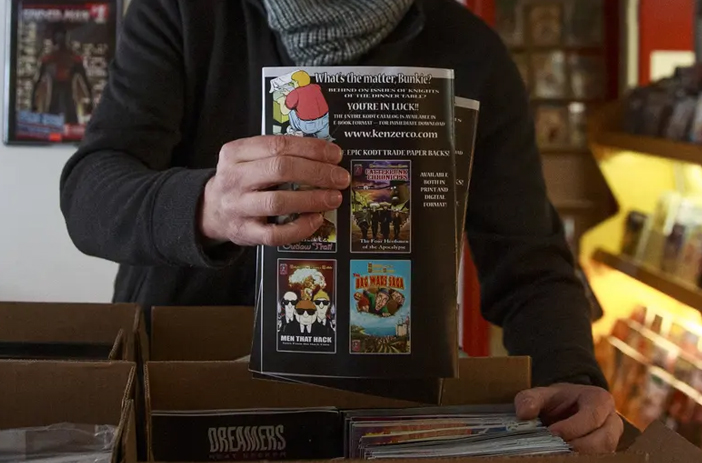
Tip: Contact multiple appraisers to get good estimates. You never know how accurate an appraisal is. Maybe the appraiser lowballed you, or they just missed a small detail that makes a big difference. By getting a handful of different assessments, you can have a much better idea of the average value of your collection.
There are a few different sources of comic pricing. There are always price guides, like the Overstreet guides, though with how fast information moves around the modern internet, these aren't always accurate for long. Comic stores generally keep their price guides, and you can always use recently sold (not just listed) auctions on sites like eBay to estimate as well.
Tip: Avoid any appraiser who charges a fee (outside of extreme circumstances) or requires selling to them. The majority of appraisers will do the estimate for free and will be happy to work with you if you want to pursue selling to or through them. If they're pressuring you to sell, especially if they're putting a time limit on it or asking for a contract, walk away.
The only time a fee is appropriate is if you have a significant collection and the appraiser is traveling to you.
One thing to avoid is typical non-specialist auction houses, thrift stores, pawn shops, and others of the like. If they don't deal with and specialize in comics, they aren't going to know what a collection is worth, and the appraisal you get won't be anywhere near its actual value.
Step 4: Consider Getting Key Issues Graded
An appraisal can help you identify the key and important issues you have in your collection and give you an idea of their value. Now you're presented with a choice. If those comics aren't graded already, should you grade them?
In many cases, grading comics can increase their resale value. This effect is more significant as the older and the better the condition of the comics in question. Grading a modern comic might increase its value from $50 to $70, but grading a vintage key could boost it from four figures to six. Obviously, in the wide world of comics, there's far too much variation to pin down a specific answer.
Keep in mind that grading comics costs money, requires careful shipping, and takes time to complete. You have to evaluate whether or not it's worth the time and expense and if the increase in price is likely worth it.
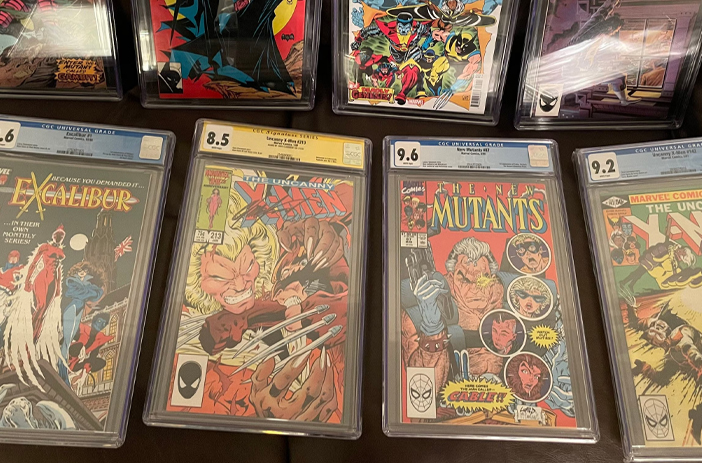
Tip: Appraisals have a shelf life. The valuation of comics changes over time, and while it usually goes up, there's often variation and declines in value for non-key issues, less popular characters when they aren't in the media spotlight, and so on.
A similar decision is whether or not you want to invest in cleaning and pressing your comics.
Cleaning and pressing is an undetectable way to improve the condition of comics by carefully removing dirt, debris, and minor marks and then pressing the pages to remove dings and creases.
You can read more about the process here. It's often included with grading, and can further improve the value of comics, but it's not always necessary.
What Appraisers Look For
Want a look behind the curtain? It can be a good idea to know what an appraiser is going to be looking for when they assess your collection, both so you can consider appraising them yourself and so you can understand the whole process.
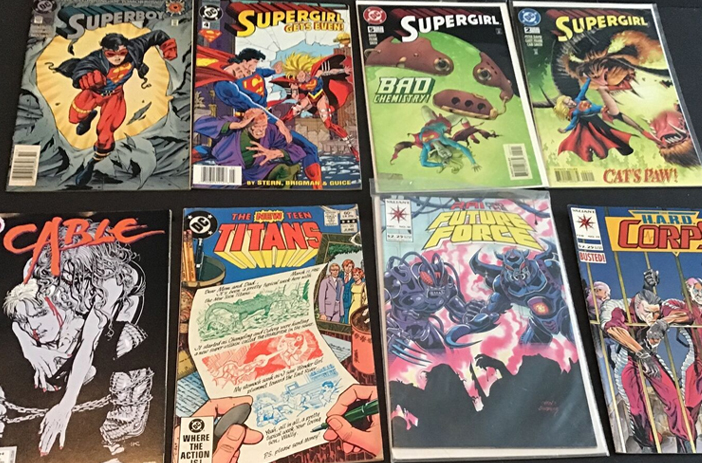
Generally, appraisers are going to look for specific qualities of both the collection as a whole and individual books.
- The size, scope, and era of the collection. A small collection of vintage comics is often much more valuable and interesting than a massive pile of 2000s comics.
- Specific key issues. Key issues are essential issues featuring the introductions of characters or important events, like the death of a character. These usually have more significant value than average issues in a series.
- The condition of the books. Condition plays a significant role in the valuation of a comic, and a comic in perfect condition can be worth an astonishing amount. Even damaged books, if they're old and noteworthy, can be valuable.
- Special features. If some of the comics are graded, if they're variations like international versions or newsstand versions, or if they're signed or otherwise altered, this can affect the value of the book.
- Current popular interest and demand. Big movie releases, new TV shows, and other forms of media can spike interest in a particular character or story arc, and comics in that series can be more valuable, often temporarily. Demand can also go up, which is essential in valuation.
There are other factors as well, of course, but these are the big ones. Every appraiser has their strengths and weaknesses, their particular interests, and their areas of expertise. If you have a specific kind of collection (like old horror comics or more adult-oriented comics), you may want to find a specialist appraiser as well.
Once you have a good idea of what the valuation of your comics collection is, you can decide what you want to do with it. Do you want to sell it all in bulk and be rid of it? Do you want to sell the valuable issues individually for maximum value, despite the time invested? Do you want to part it out by series or character? Do you want to hold onto it to see if its value further increases?
These are all good options, and the choice is yours to make.
If you're interested in a free, no-strings-attached appraisal, feel free to reach out to us!
Likewise, if you're interested in selling your comics, drop us a line. We're always happy to help!

